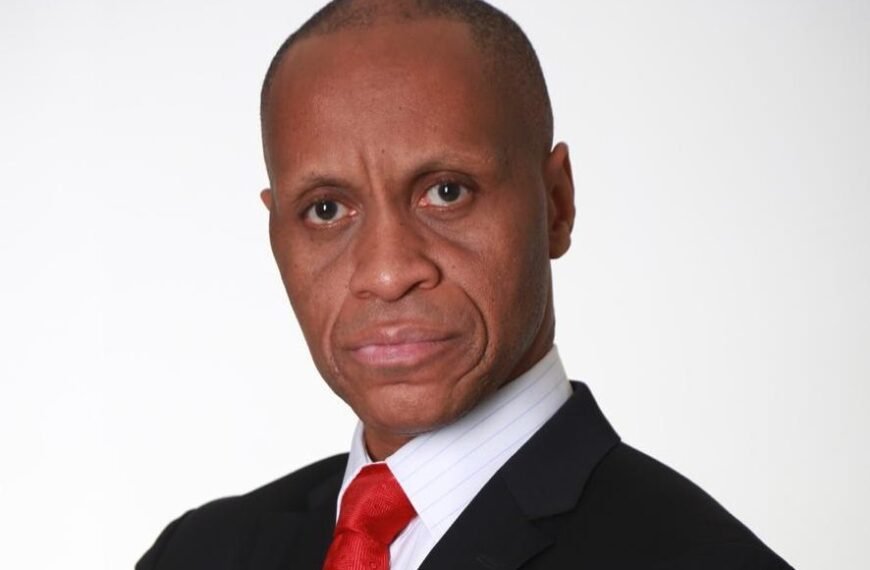
Ghana: Puma Energy facilitating clean cooking energy access
Puma Energy Ghana, a prominent energy company, reaffirms its dedication to facilitating access to energy, particularly clean cooking solutions, during the visit of Michael S. Regan, Administrator of the U.S. Environmental Protection Agency (EPA), to its LPG (liquefied petroleum gas) bottling facility.
The visit, graced by Mr. Michael S. Regan, the Second Lady of the Republic of Ghana, Her Excellency Samira Bawumia, and U.S. Ambassador to Ghana Virginia Palmer, was intended to acquaint them with Puma Energy Ghana’s LPG operations and its crucial role in facilitating access to LPG in Ghana.
In sub-Saharan Africa, where approximately 970 million people lack access to clean cooking fuels and technologies, as reported by the International Energy Agency (IEA), LPG holds significant importance in the energy mix. Many households rely on solid fuels like wood, charcoal, or kerosene, resulting in environmental and health risks. Household air pollution, primarily from cooking smoke, is associated with 2.5 million premature deaths worldwide, while wood usage contributes to deforestation.
Puma Energy provides safe, reliable, and affordable energy solutions across sub-Saharan Africa and encourages the transition to cleaner cooking fuels and solar power. Its commitment to enabling access to lower carbon-emitting fuels is evidenced by the company’s recent acquisition of Zambian-based Liquid Petroleum Gas (LPG) supplier OGAZ and its purchase of a 49 percent stake in MBHE, which provides renewable energy project development, implementation, and maintenance across southern Africa. Both acquisitions will strengthen Puma Energy’s capacity across its key markets.
Puma Energy’s LPG strategy for the sub-Saharan Africa region focuses on ensuring availability, accessibility, and affordability. This includes centralizing supply management, establishing mobile cylinder-filling plants operated by local communities to bring LPG closer to end-users, and collaborating with regulators to enable consumers to purchase LPG in small, affordable quantities similar to charcoal, wood, or kerosene.
During the visit, Mr. Regan acknowledged the importance of enabling access to sustainable energy. “Access to clean and affordable energy is essential for economic development, reducing poverty, and mitigating the effects of climate change,” said Administrator Regan. “Cleaner cooking solutions are not just better for the environment; they are better for your health.”
Commenting on the company’s commitment to enabling clean cooking, Mr. Zwelithini Mlotshwa, General Manager of Puma Energy Ghana, said, “LPG is a safe, convenient, and cost-effective way to energize our communities; to enable cleaner cooking and reduce the negative impacts of burning traditional cooking fuels. Beyond domestic use, LPG is a vital energy source for commercial and industrial applications, including in hotels, restaurants, hospitals, schools, and shopping malls.”
U.S. Ambassador to Ghana Virginia Palmer emphasized the importance of public-private partnerships to achieve the UN Sustainable Development Goals. “It’s essential to invest in clean cooking solutions. Working together with government entities and stakeholders, we can create positive change and improve the lives and health of the Ghanaian people,” Ambassador Palmer said.
Puma Energy Ghana’s LPG bottling plant located in Tema is a US$6 million state-of-the-art facility with the capacity to deliver 1200 cylinders of various sizes per hour. It adheres to strict health and safety standards, ensuring the production of high-quality LPG for domestic and commercial use. The plant will enable the rollout of the Cylinder Recirculation Model (CRM) initiative in line with the Ghanaian government’s agenda to encourage the use of LPG to attain a penetration target of 50% by 2030, ensure safety, and accessibility, and improve energy efficiency.
Puma Energy Ghana’s LPG services complement the solarization of 10 retail sites and the introduction of solar energy solutions for industrial and commercial clients. Additionally, the company is expanding its LNG business in Ghana.


















